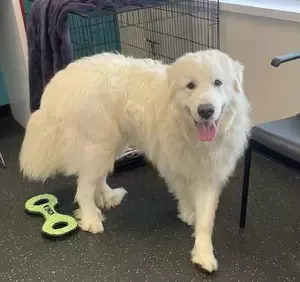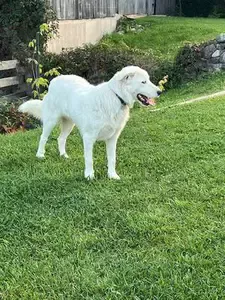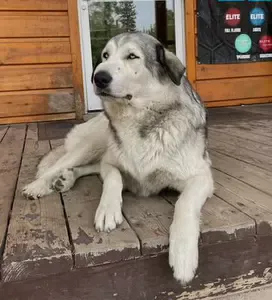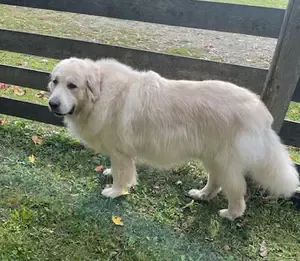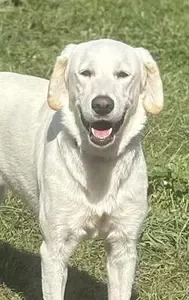New to Great Pyrenees.
We are adopting a 7 1/2 mouth old Great Pyrenees. We are very excited about getting him I was just have a few questions. Since the previous owner got him he's been living in the barn to protect their goats but now can no longer keep him well when we get him he will be an inside dog and I'm just wondering how to go about transitioning him into an inside dog and I do have a male 13-year-old golden retriever that's not neutered And just wondering if you think that's going to be a problem?
Comments for New to Great Pyrenees.
|
||
|
||
|
||
|
||
|
||
|
||
Breaking News
-
Flocon
Feb 09, 26 03:01 PM
Name: Flocon DOB: Approx. Jan. 26, 2025 (don’t know for sure) rescued Jan. 2026 Location: Acton, Ontario Good with dogs, cats and people. Not sure -
Courtesy Post - Sarge
Jan 20, 26 01:13 PM
*STAYING IN THE FAMILY* Courtesy Post - Sarge Location: Mount Albert, Ontario DoB: Unknown 2023 Required: He is comfortable around livestock, but -
Hardy
Dec 26, 25 06:23 PM
Hardy Location: Acton, ON DOB: Approx. January 2025 (we think he is older though) Single-family home required. Minimum 5-foot securely fenced yard. -
Bo
Dec 12, 25 02:22 PM
*ON HOLD* DOB: late Sept 2023 (don’t know for sure) rescued Dec 2023 Location: Acton, Ontario Name: Bo Single dwelling home with a securely fenced -
Ronnie
Nov 22, 25 06:20 AM
*Adopted* Location: Acton, ON DOB: 9-years-old This big sweetheart went to foster and was soon adopted before we got him posted. From the shelter: -
Lola
Nov 19, 25 12:01 PM
*ADOPTED* A single family dwelling and a securely fenced yard of at least 5 feet are musts. DOB approx: Februay 12, 2021 Location: Acton, Ontario This -
Mayne
Nov 07, 25 04:04 PM
*ADOPTED* (FOSTER FAIL) Mayne Location: Acton, ON DOB: August 5, 2017 (8-years-old) Single-family home required. Minimum 5-foot securely fenced yard. -
Courtesy Post - Remi
Oct 17, 25 11:09 AM
*ADOPTED* Remi (Retriever/Pyr cross) D.o.B: Sept. 30, 2023 Location: Between Owen Sound and Port Elgin (Tara, ON) Remi was given up because of health




